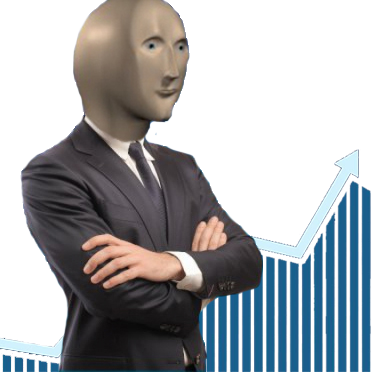Is going public the answer? If so, how?
Because no actually existing market is completely competitive. You are correct that in an academic sense, a completely competitive market would have 0 profit. But in reality, prices don't adjust instantaneously, and you can't just choose to buy groceries at a store in Vermont if your local one in Nebraska has higher prices.
Your average business owner is not aware of every price around the world, but the one price they do know is their cost basis. So they set the price somewhere above that and hope that enough people will buy (aka, they hope that demand is inelastic enough) that they will make profit>0 and not go out of business. This works because instead of infinite competition, most businesses will have only 2-3 competitors in their area. An easy way to visualize this is to think about the different gas stations around town; they probably have several slightly different prices for gas, but they all stay in business despite only one of them having the best price.
I've been thinking about this a lot lately - the "free market" is not actually driven by free consumptive choices, the much more essential free market mechanism is the competitive marketplace of companies trying to attract investors.
There's a few key things here.
One is that no consumer goes and researches every purchase they make to be more efficient. No one is going "oh safeway generic pasta noodles are cheaper, but aldi has the cheaper pasta sauces, so I'll make two stops to get the most value" people get the stuff they want, and are largely driven by subjective value, like advertising, branding, and don't have the time or energy to do extensive research.
Companies don't grow like players in stardew valley or farmville. You don't start with a patch of soil, grow 6 potatoes, sell them to buy another lot, grow 10 potatoes, and continue to expand based on revenue. You go to an investor with a pitch, and get millions or billions in Saudi Oil money to start a company that's like Uber but for your dishwashing machine.
Investors are going to do a lot of research into what they fund, and that research is primarily going to be "what is the risk of my investment, and what is my possible return?" They aren't going to fund stuff that doesn't have a good return, and that return needs to be competitive across basically any investment industry they could put their money in.
SO - the primary competitive market, in the free market, is the one to attract investors. A company trying to grow off of revenue will never be able to compete against one that can access millions in capital before even opening a store. The only way you can attract investors is by offering a good return. Saying "we're gonna undercut our competitors by not returning profits" is never going to attract investors, because they're not donating to charity, they're trying to make money. The only way that can work is with the Walmart or Amazon model where you use cost undercutting and run negative long enough to fully drive your competition out of business and then monopolize the whole space, which again, will deliver more value to your shareholders.
TL;DR - the economy isn't two dudes growing potatoes trying to compete against each other, it's a bunch of silicon valley assholes trying to solicit Saudi Oil money to fund highly extractive rent-seeking activity.
I hate that I could see a ride share, but for 'using your washing machine to. Make some extra cash' the app. Have the Uber drivers ferry laundry around . Ghoulish.
something like an intro to neo-classical answer:
a perfectly competitive market will produce 0 "economic" profit (definitionally), but economic costs include opportunity costs/returns on capital. so, these firms' books' will still all show accounting profit, but this is exactly what is required to pay investors.
but, closer to what you're probably asking: very, very few markets are perfectly competitive, and, as they won't be pressured to price at marginal cost, can price higher/produce less, and thereby profit over and above a firm in a competitive market.
Because there is usually scarsity of supply. As long as the economy develops this scarcity tends to disapear. In a completly developed market the rate of prfit tends to 0. This is the root cause of the current crisis. When the real rate of profit is too low the capitalist will tale riskier descicions and cash out. This is the canivalistic phase of capitalism, but is also a feauture of agrarian societies.
Tesla and bitcoin are good examples of this. They are esentialy scams but the capitalists put thir money there because if they win they get to eat the profits of other capitalists. A significant portion of the financial sector is part of this canivalistic process.
In aggregate, capitalists make what they spend and workers spend what they make. If you build a house, you spend a bunch of money from your savings on concrete, lumber, pipes, wires, and labor, and you end up with a house that is worth, you hope, more than you paid to build it. The money has left your possession but a new thing, a house, worth that amount is now in your possession. The money is out there somewhere, and the house now exists too. A profit is created through money invested in creating a valuable object because the total value increased. However money is not a fixed amount. It expands and contracts because banks can create the funding to buy the house by changing numbers in a computer and paying interest on the resulting deposit. The bank will create a bank deposit (a mortgage) for someone to buy the house from you. So the amount of money is generally expanding and collateralizing the real wealth (the house). That way further profit is created through someone spending from their (future) savings. People can only spend so much from their savings and then spend so much from their future savings though, so the real wealth needs to increase more than debt and prices need to make sense or you get a financial catastrophe.
Which is your question? Are you asking about where finance capital profits come from? Are you asking about just profits broadly?
A perfectly competitive market would drive profits to zero.
It doesn't happen irl because there's no perfect competition. Like for example goods are not perfect substitutes for each other. I can't switch my drill to Black and Decker because then my charger won't fit. Another example is barriers to entry. A "natural monopoly" like a power company is insulated from competition because the costs for an entrepreneur to start their own power plant is too high.
I'm going to go to the grocery store closer to my house even if the that store makes a 2% profit and the store further way is selling things at cost (so slightly cheaper). There are many factors
Because the US post-war 90% upper tax brackets and strict control over CEO/worker pay, and other such laws have been removed. What we needed was more regulation, not less.


